Posted by at 4:28 PM, October 13, 2005
I've recently returned from Norwalk, Connecticut's Center for Contemporary Printmaking where I taught another five-day Japanese Printmaking workshop, my fourth at CCP. This was the smallest group to date, only four students, but all accomplished artists in other media.
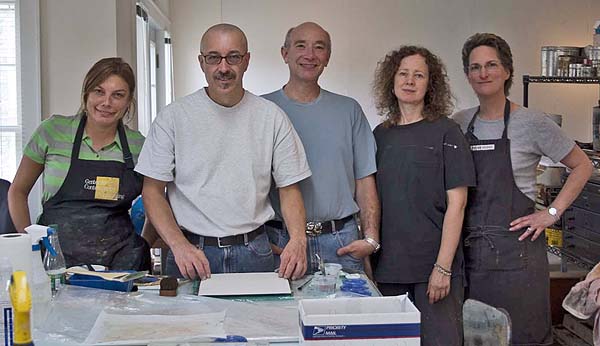
The CCP September, 2005 group -- Natasha, Roger, Mike (me), Nash, & Judy
I always try to 'adapt' the traditional Japanese techniques to each student's interest and work methods while encouraging them to work to an easy scale with multiple over-lapping block designs. This group was unusually receptive and quick to grasp everything I had to offer, and I think everyone enjoyed the experience and several will surely continue to print moku-hanga, incorporating their new skills into their ongoing work... What a ball! Here are some more photos:
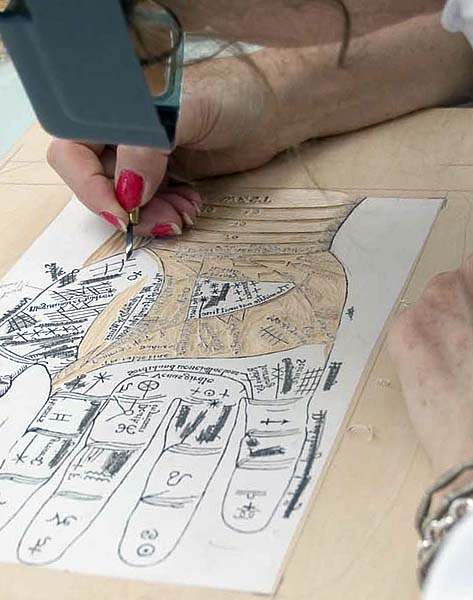
Nash carving her Palmistry block
Nash brought in a photocopy of an old Palmistry chart -- all thin lines and tiny lettering. We registered it to her kento (which she had already carved into the narrow side of her blocks -- not recommended!) and pasted the photocopier bond paper to the block using rice paste -- brushed the paste thinly onto the block and tapped it up into little tacky peaks, then positioned the sheet carefully and pressed it down flat and smooth with the printed side up (as the photocopy was already reversed during copying). An hour later I demonstrated carving techniques, outlining and relieving each line to be printed, then clearing with small gouges, etc. Nash worked on the block part of two days, and I assisted with additional carving during a long evening to complete it.
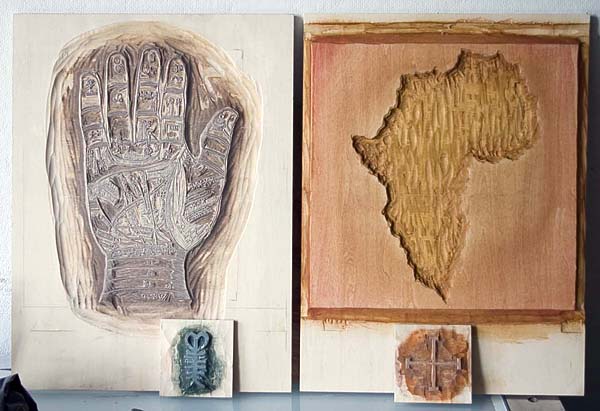
two of Nash's completed blocks
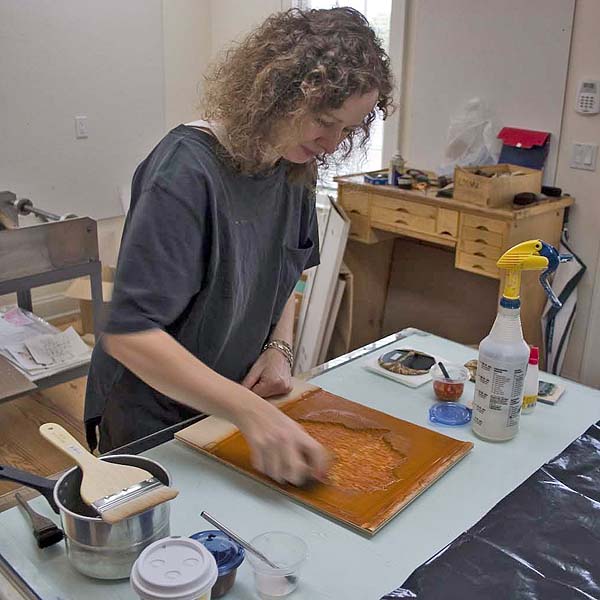
Nash inking up her Africa block
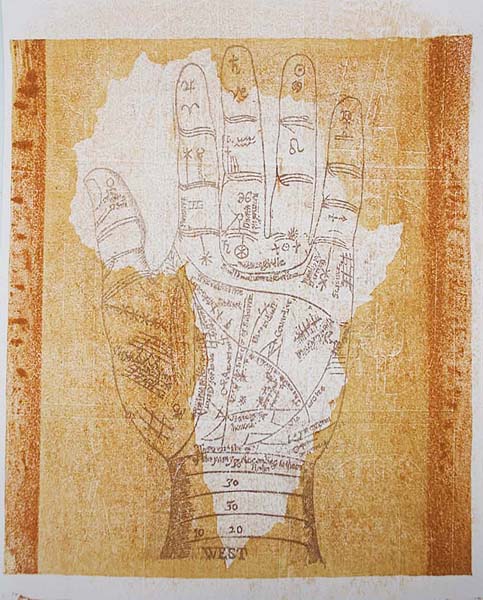
One of Nash's prints using the two blocks pictured above.
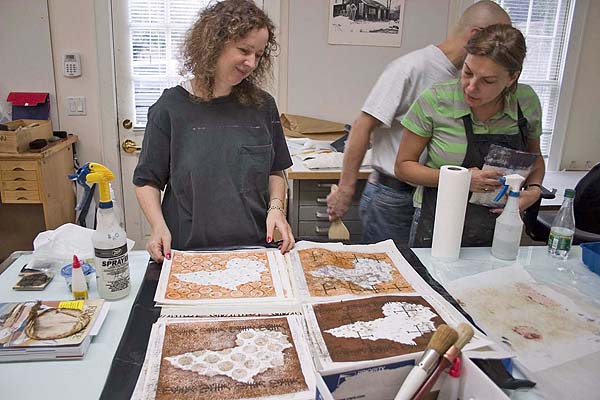
more examples of Nash's prints -- these incorporated some collagraphed blocks -- cardboard with wood and other materials glued on, then sealed with acrylic medium.
I don't mean to monopolize the workshop report with Nash's prints -- these were just the first photos I 'grabbed' for viewing. Everyone did notable work, actually.
Judy, for example, brought in a lot of brush and ink figure studies and wanted to reproduce them in prints similar to the figurative work I've been showing in recent years. She separated the tones by hand, working long and quiet hours drawing contours, then carving several blocks and finally printing them by patiently building up subtle color layers and gradations.
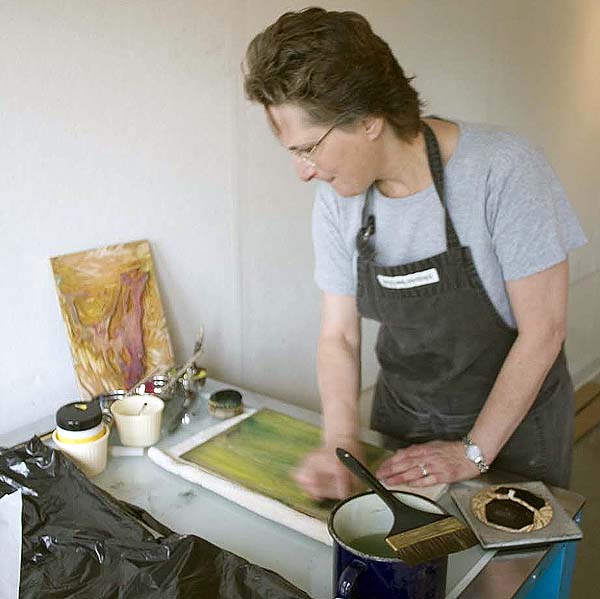
This is Judy, brushing up one of her blocks.
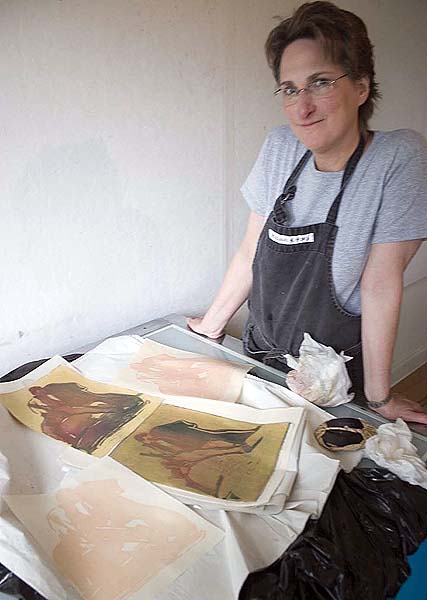
and here she shows off several of her prints in progress.
Natasha is a big fan of Miro and her own paintings and monotypes are abstract and somewhat Miro-like (seemed to me). She attempted to make something like her usual imagery by figuring out shapes and colors in advance, then carving the blocks and printing. I think she was a little frustrated that the blocks 'locked her in' to the already defined and carved shapes, and she didn't feel she had time for more carving, so she experimented with monoprinting the blocks and obtained some interesting prints, I thought.
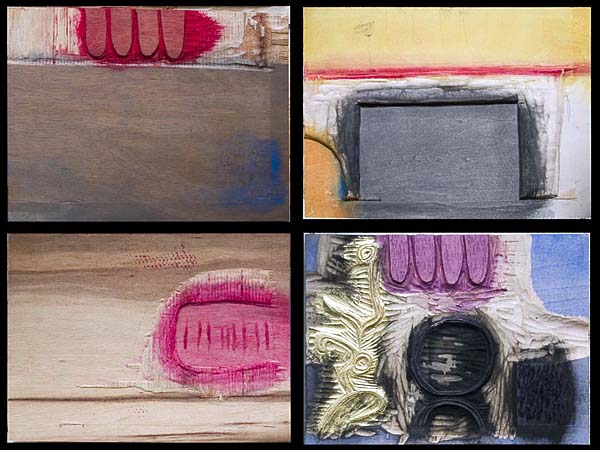
Natasha's block set
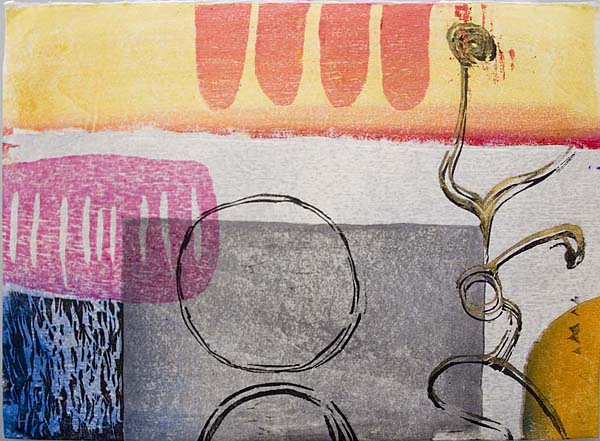
an example of the print Natasha more or less intended -- this one has some metallic gold printing from one of my demos which she did not intend :-)
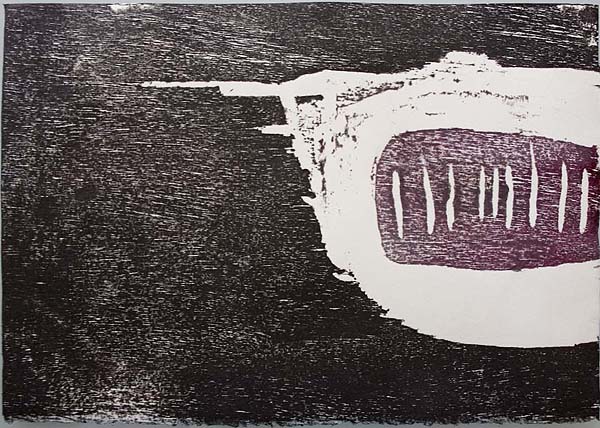
One of Natasha's monoprints -- this pulled in two printings from a single block.
Roger has been making abstract paintings over gold leafed paper -- he sizes the paper, then very patiently and slowly builds up thin layers of lightly pigmented acrylic varnish, brushing the pigment into roundish patterns.
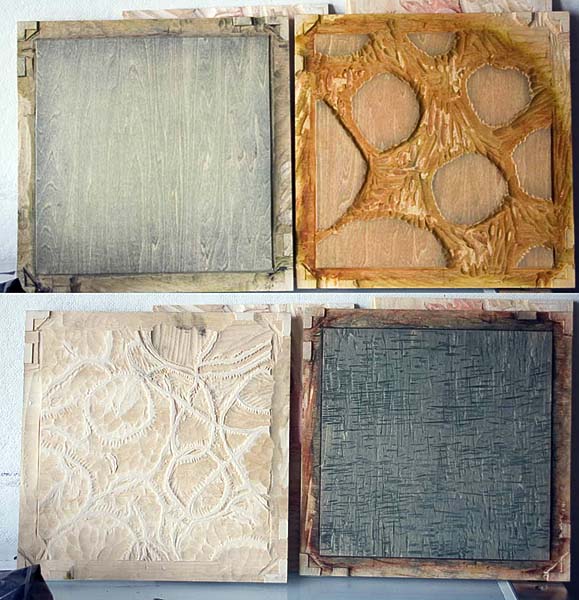
Roger carved his square block designs with a set of kento on each of the four sides so print papers could be rotated over the blocks to build imagery similar to his paining.
I suggested that Roger try preparing some printing papers with metallic leaf and then try building up paste and pigment onto the metallic and non-absorbant surface.
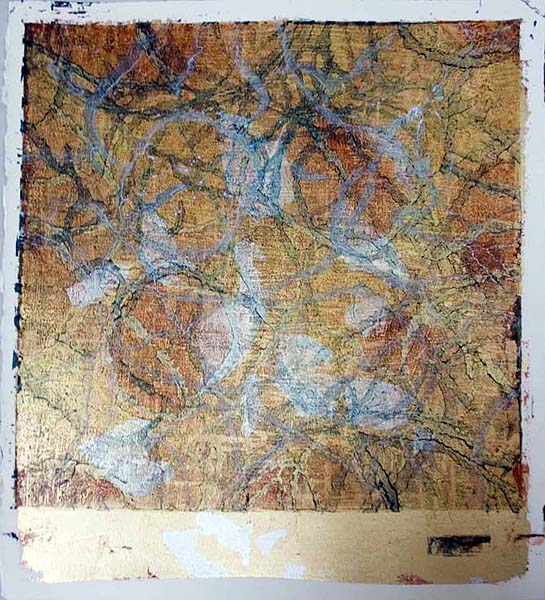
One example of Roger's hanga over gold leaf
Both his conventional prints and his leafy prints (as he obtained results over the leaf which he liked, he 'sealed' them with acrylic medium, then built more onto the medium, and so on working with small changes and thin color layers. I liked his prints a lot.
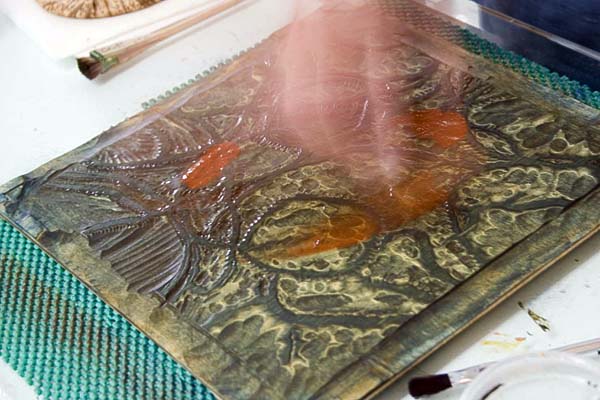
Here Roger brushes up one of his blocks
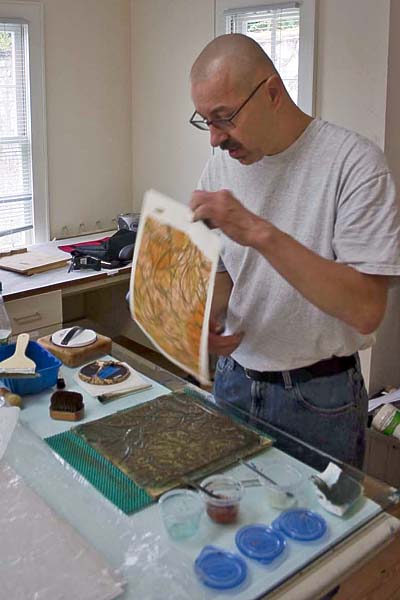
...and pulls a print
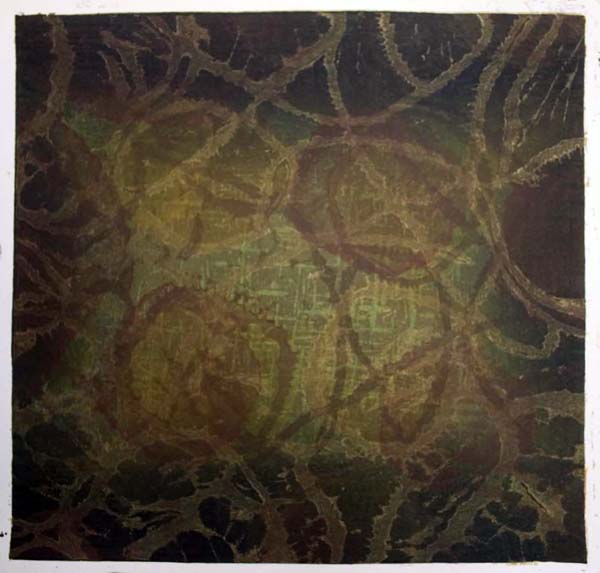
One of Roger's more conventional prints
In the print above, I'd demonstrated bokashi printing using sumi -- Rogers subsequent printing lifted some of the sumi creating an interesting reversal.
So, it was a great experience and we all learned a ton! So much fun -- I'm already looking forward to next time!
-- Mike Lyon
-- www.mlyon.com

Thanks for posting these pics Mike. I am fascinated by the way in which each person can bring a unique style to printmaking. There are so many forks in the process (as in choices, I'm not recommending carving with forks) that before long you are working in an area that nobody has been before.
Mike, this is so wonderful to see! I hope to be there next year - Connecticut is just down the road a bit from me. I'm really impressed with each of these artists' work. They each tackled very difficult objectives and it looks like each of them accomplished some very successful prints. Thanks so much for showing these photos.
Thanks, Annie -- FYI, the Center for Contemporary Printmaking has invited me back to teach another workshop in March, 2006 -- contact them to receive their catalog for details or check their website for more information.
During August, 2006 I'll teach similar five-day Japanese printmaking workshops at the Anderson Ranch Arts Center (beautiful and very upscale locale in the high Rockies) in Snowmass, Colorado and a few weeks later (after the Baren Summit) about an hour West of New York City in Layton, New Jersey in the rusticly gorgeous Delaware Water Gap Peter's Valley Craft Center.
Hope you may be able to make it to one of those?
-- Mike